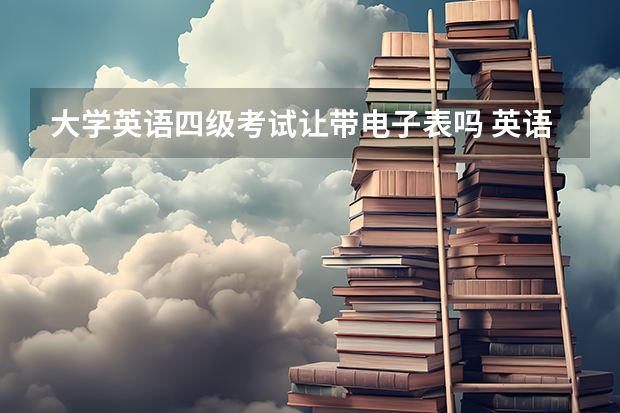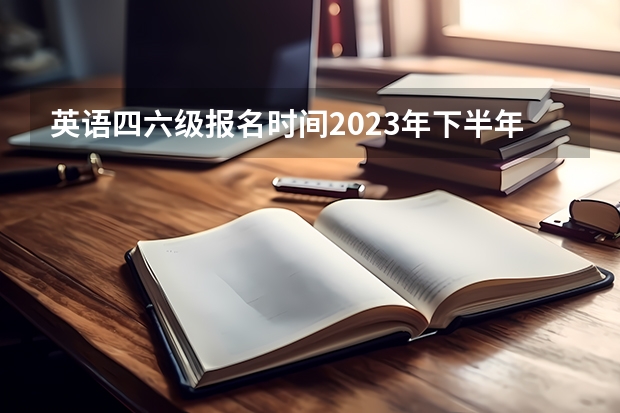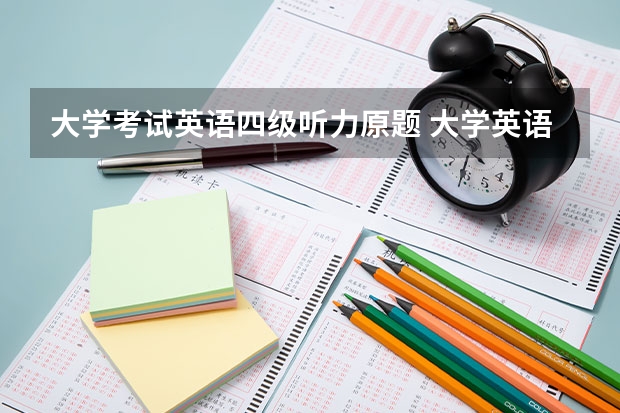水稻杂交技术 英文怎么说
2024-06-11 11:18:38 | 炎炎英文培训网
本文目录一览:

水稻杂交技术 英文怎么说
Yuan Longping -- Father of Hybrid Rice
"I saw rice plants as tall as Chinese sorghum,” said Yuan Longping of a dream he once had, “each ear of rice as big as a broom and each grain of rice as huge as a peanut. I could hide in the shadow of the rice crops with a friend." Yuan was just awarded 5-million-yuan State Supreme Science and Technology Prize for his high yield hybrid rice species. This award is viewed as "Chinese Nobel Prize".
Road to Super Hybrid Rice
Born into a poor farmer's family in 1931 and a graduate from the Southwest Agriculture Institute in 1953, Yuan began his teaching career at an agriculture school in Anjiang, Hunan Province.
He came up with an idea for hybridizing rice in the 1960s, when a series of natural disasters and inappropriate policies had plunged China into an unprecedented famine that caused many deaths.
Since then, he has devoted himself to the research and development of a better rice breed.
In 1964, he happened to find a natural hybrid rice plant that had obvious advantages over others. Greatly encouraged, he began to study the elements of this particular type.
In 1973, in cooperation with others, he was able to cultivate a type of hybrid rice species which had great advantages. It yielded 20 percent more per unit than that of common ones.
The next year their research made a breakthrough in seeding. They successfully developed a set of technologies for producing indica (long-grained non-glutinous) rice, putting China in the lead worldwide in rice production. For this achievement, he was dubbed the "Father of Hybrid Rice."
In 1979, their technique for hybrid rice was introduced into the United States, the first case of intellectual property rights transfer in the history of new China.
At present, as much as 50 percent of China's total rice fields grow Yuan Longping’s hybrid rice species, yield 60 percent of the rice production in China. Due to Yuan's hard work, China's total rice output rose from 5.69 billion tons in 1950 to 19.47 billion tons last year, about 300 billion kilograms more have been produced over the last twenty years. The annual yield is enough to feed 60 million people.
The "Super Rice" Yuan is now working on yields are 30 percent higher than those of common rice. A record yield of 17,055 kilograms per hectare was registered in Yongsheng County in Yunnan Province in 1999.
Quality or Quantity Oriented?
The debates among scientists about whether quality or quantity should take priority are frequently heard. In the under-developed world, the output increase is no doubt the primary concern, while people in developed countries prefer a high-quality rice.
Yuan had been asked to switch his major concern from increasing output to improving quality and taste, a task easier to accomplish for him. But Yuan was unswayed. He firmly believed, in developing countries, the output increase outweighs the urgency for a better taste, and that his foremost task was to increase the grain reserve in developing countries.
"First we must have enough food, then comes eating well," he said.
What's more, he explained, high yield does not necessarily mean a low quality. In the past, when the Chinese people were not sufficiently dressed and fed, they looked on high output as their only goal. So they used fertilizers and farm chemicals without limit. This surely led to quality degrading. At present, China has established nine indicators to evaluate the quality of rice, some of which are positively correlated with the output, while others are not. Last year, China planted over 3 million mu of hybrid rice, with an average yield of 650 kilograms per unit. The highest unit output has reached 1,139 kilograms. Due to improvement in quality, six indicators of the rice have met the First-grade level, and the other three the Second-grade. Some people, after trying this rice, said, "It is more tasty than the rice from Thailand."
Yuan is currently working on species meeting the second-grade standards set by the Chinese Ministry of Agriculture.
"The rice of this level is more affordable for urban and rural people," Yuan says.
Money and Fame
Longping High-tech, a seed company using his name, started business last May in Shenzhen. In return, Yuan got 5 percent stake or 2.5 million shares worth 2 million yuan.
Yuan's wealth is estimated more than 100 million yuan (US$12 million), making him one of the richest in China. But he cares for nothing more than his research.
"That figure means nothing," he says in a heavy local accent. "I’m satisfied with my life. Too much money means a burden. My mind is on my research only."
But he admits that the listing may help China's hybrid rice in international market and may bring more funds for future projects.
He has, with a donation of 2 million yuan, established Yuan Longping Foundation, which awards merited workers in agricultural research.
Four minor planets and a college in China were named after him, the first time a Chinese scientist's name has become intellectual asset.
"I am afraid of fame," said Yuan, his face lean, wrinkled and sun-burnt, "Too big a fame, too little freedom."
Two Wishes
In late 1960s, rice output was just over 300 kilograms per mu (0.06 hectare), but Yuan had increased that to more than 500.
But Yuan didn’t slow down, working hard on another breed with bigger grains of rice, and a yield of over 800 kilograms per mu.
This project, he said, was on two stages. The first was to achieve 700 kilograms per mu on large scale, which was realized in 1997. That year, Yuan saw the highest 870 kilograms of rice per mu in his experimental field in Hunan. The result was similar in an even larger experiment conducted in 1998.
The second target is to reach an annual yield of over 800 kilograms per mu. He has set the year of 2005 as the deadline for this goal. However, Yuan is confident in hitting that target two years ahead. One reason is an output increase by 7 to 10 percent has been seen in experimental fields; the other being a new planting technique which should bring additional 10 percent increase.
Besides, Yuan has another dream -- introduce this breed to and benefit every nation.
The FAO (United Nations Food and Agriculture Organization) 1991 statistics show that 20 percent of the world's rice output came from 10 percent of the world's rice fields that grow hybrid rice.
A famous economist claimed the Yuan’s achievement as a victory over the threat of famine and that Yuan was ushering us into a world with ample food.
Now, over 20 countries have adopted the hybrid rice. The FAO has vowed to be actively involved in spreading the Yuan's high-yield hybrid rice worldwide.
"If the new strain is sown in the rest of the rice fields, the present grain output worldwide can be doubled, a significant solution to the grain shortage," said Yuan.
Yuan worked as the chief consultant for the FAO in 1991, to share his knowledge with workers from other countries. He has gone abroad every year to provide guidance. He also sent scientists to India, Viet Nam, Myanmar and Bangladesh to work as advisors. Between 1981 and 1998, the Hunan Hybrid Rice Research Center under Yuan Longping held 38 training classes with over 100 participants from 15 countries.
With the help of Chinese scientists, the acreage of hybrid rice in Viet Nam and India increased to 200,000 hectares and 150,000 hectares respectively in 1999.
After Work
In spite of a busy schedule for academician of Chinese Academy of Engineering, vice-chairman of the Provincial Chinese People's Political Consultative Conference, Yuan has managed to keep some interests other than working.
In his spare time, he loves reading books and listening to music. Half an hour of reading in bed before sleep is his habit. He is also a good swimmer.
Other hobbies of his include daily motor-cycling and playing violin. He’s an occasional mahjong player too.
From sowing to harvesting, Yuan goes to fields twice daily, covering about 8 kilometers in total distance. Thus his motorbike has become Yuan's essential transportation. "Riding a motorbike was one of my favorite sports in my youth," Yuan smiled. "But now, it’s more for work than for fun."
Yuan picked up the hobby of playing violin from a music lover at college. During the "cultural revolution," classical music was viewed decadent, so he stopped playing and sent his violin away. He now suffers from arthritis and can no longer play violin. However, he still adores violin music.炎炎英文培训网
“When I lose a game in mahjong,” Yuan smiled, “ I never hesitate to pay the price-- creep through under the table.”
(CIIC by Li Jinhui 03/05/2001)

英语作文杂交水稻之父(Father of Hybrid Rice)
So far, the world's average per-mu yield of rice remained at approximately 200 kg. Chinese Yuan Longping led his research team, through the haze of science to give the world the power of a strong fight against hunger. Therefore, China's hybrid rice by the world known as the "Oriental magic rice." Rice even higher than in sorghum, rice was also longer than the broom, rice as big as peanuts, he and his aides sat on rice cool shade below! Cities and villages, river north and south, both inside and outside China in the human will never be hungry, they excitedly spread the news of a legendary name - Yuan Longping1. In September 1930 in Beijing, Yuan Longping, a child born on the dream of becoming a scientist 2. Since 1953, graduated from Southwestern University, he has been conducting scientific research in agriculture 3. The last century 70's, he found very difficult to improve rice production, we decided to engage in hybrid rice research 4. There is no doubt that he was the world's food production has made great contributions to 5. Because of his great achievements, he received many honors and awards, including the "World Food Prize"

听农民讲如何种植水稻的英文
听农民讲如何种植水稻的英文:Listentofarmerstalkabouthowtogrowrice.
水稻种植业主要分布在亚洲季风区。
季风区水稻的种植约有7000年的历史,稻米是当地人们喜爱的主要粮食,所产稻米占世界稻米总产量的绝大部分。
中国是世界上最大的稻米生产国家。
水稻种植业是一种劳动密集型农业,劳动强度大,需要投入大量劳动来精耕细作,东亚、
东南亚
、南亚人口稠密,劳动力丰富;一站式出国留学攻略
免责声明:文章内容来自网络,如有侵权请及时联系删除。

沟通交流的英语演讲稿沟通交流的英语演讲稿范文演讲稿特别注重结构清楚,层次简明。在不断进步的时代,接触并使用演讲稿的人越来越多,那么你有了解过演讲稿吗?以下是我为大家收集的沟通交流的`英语演讲稿范文,仅供参考,大家一起来看看吧。沟通交流的英语演讲稿范文1Communicationiscommonandimportantinourdailylife.Allofuslivewi

请问“职业技能”用英语怎么说?职业技能:professionalskills辅助职业技能:subsidiarytrade职业技能教育:vocational-technicaleducation职业技术教育:1.professionaltechnicaleducation2.vocationalandtechnicaleducation技能:skillRelativ

英语培训课程翻译①我们有专业技能培训课英语翻译我们有专业技能培训课Wehaveaprofessionalskillstrainingcourse②翻译课程的听说学什么这是新东方两个翻译班的内容,作为参考:《听说翻译》培训特色(除寒暑假外)50人以下小班训练,多媒体教室和语音教室口译实战练习。培训对象英语专业大一的学生,非英语专业听说流利、主观词

课程表英文怎么说问题一:课程表用英文怎么写?老外一般用:SubjectTimetable问题二:课程表用英语怎么说1、curriculumschedule2、syllabus老外一般说subjecttimetable问题三:课程表用英语怎么说?courseschedule或者直接schedule就可以了.问题四:课程表用英语怎么写syllabus;curriculums

做晚饭的英文怎么说?这个问题我会,虽然本人英语口语不是很好,但是对英语四六级词汇还是很熟悉的~下面给大家从三个方面具体解释一下:【含义】1.cookdinner意思:做饭2.makedinner意思:做晚餐,做饭【用法】1.cookdinner用法:接名词或代词作宾语,也可接双宾语,其间接宾语可转化为介词for的宾语。cookdinne

预约课程预约课程英文怎么说预约[词典]makeanappointment;order;subscribe;bespeak;bespoke;[例句]他只根据预约会客。Hewillonlyseevisitorsbyappointment.微师预约课程能否取消其实微诗语课程的话其实也没什么的。你就是到时候不必参加也就行了,但是你想取消的话其实也是能够取消的。想

急求越剧英文简介,我要做个英语PPT,越详尽越好。。有黄梅戏和小白花乐团的英语简介更好。。谢谢了YueOperaYueOpera,originatedintheareaofShengCountyinShaoxing,ZhejiangProvinceintheearlyperiodofthecentury,isarapidlydevelopedlocaloperawithashorthis

锻炼口语的英文怎么说问题一:我希望练好口语用英语怎么说IhopethaticandowellinthespokenEnglish.Ihopeicanexchangewithothersmoreandmoreihopemymemorycanbebetter.问题二:请继续你的英语口语练习用英语怎么说?PleasekeepyouroralEnglishpractice问题三:我正在练
- 大学英语四级作文各类型模版及范文大全 英语四级作文常考类型及模板
- 水稻杂交技术 英文怎么说
- 60词英语作文《希望小学》怎么写
- 四级作文范文 12月大学英语四级作文范文
- 四级英语作文题目及范文(四级英语作文模板大集合)
- 如何写好英语作文有效沟通
- 写一篇80词的英语作文,写转基因豆的坏处(关于对转基因食物的优点和缺点及自己看法的英语作文)
- 关于教育四级英语作文范文 求大神帮助写一篇英语作文,题目大概My opinion on Education,就是表述一下自己对教育的观点
- 时代的变迁小标题作文大全(我们的新时代优秀作文7篇)
- 新闻报道英文范文大全 9月大学英语四级作文范文模板
- 12月英语四级作文范文模板(去贵州玩的英语作文)
- 高中英语作文:全民健身日(英语作文 全民健身日)
-
 大学英语四级考试让带电子表吗 英语四级考试可以带手表吗?
大学英语四级考试让带电子表吗 英语四级考试可以带手表吗?2023-09-27 18:29:52
-
 英语四六级报名时间2023年下半年(每年四六级报名时间)
英语四六级报名时间2023年下半年(每年四六级报名时间)2024-04-26 11:50:57
-
 大学考试英语四级听力原题 大学英语四级考试听力真题原文
大学考试英语四级听力原题 大学英语四级考试听力真题原文2023-09-19 17:57:39
-
 特岗报名截止时间2023 2023年特岗考试时间
特岗报名截止时间2023 2023年特岗考试时间2024-04-05 21:54:09
-
 历年英语六级 真题+听力MP3 下载地址谁有? 急求全套大学英语六级资料包在线百度网盘资源 大学英语四级词汇表及mp3格式下载
历年英语六级 真题+听力MP3 下载地址谁有? 急求全套大学英语六级资料包在线百度网盘资源 大学英语四级词汇表及mp3格式下载2023-10-23 01:18:39
-
 获取大学英语四级考试证书 英语四级证什么时候发下来?
获取大学英语四级考试证书 英语四级证什么时候发下来?2023-09-07 00:36:31